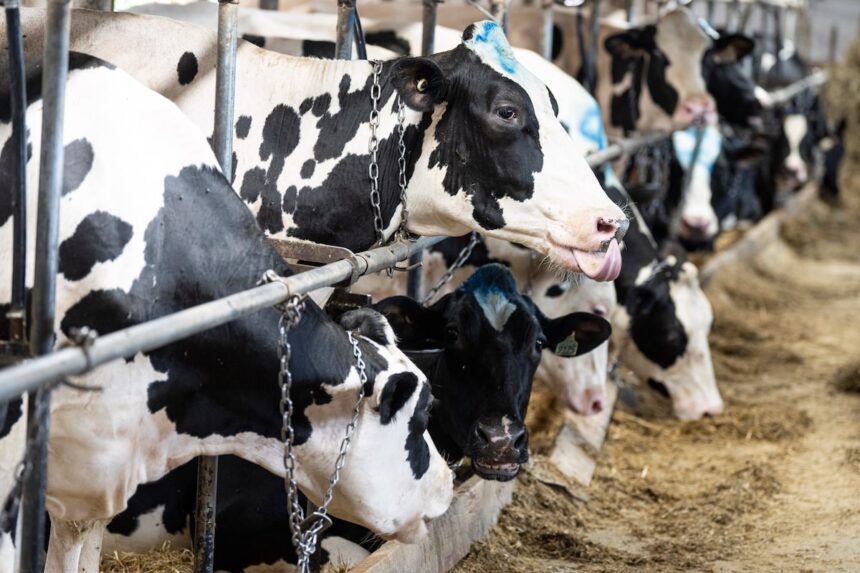The heated trade relationship between Canada and the United States has boiled over once again—this time in the dairy aisle. American dairy producers are accusing Canada of systematically undermining the United States-Mexico-Canada Agreement (USMCA) through its management of dairy import quotas, potentially setting the stage for another contentious trade dispute between the longtime economic partners.
At the heart of the controversy lies Canada’s dairy quota allocation system, which U.S. industry representatives claim unfairly favors Canadian processors over American exporters. The National Milk Producers Federation and U.S. Dairy Export Council, representing American dairy farmers and exporters, allege that Canada has failed to implement changes ordered by a dispute settlement panel in 2022, effectively blocking U.S. dairy products from accessing the Canadian market as intended under the trade agreement.
“Canada continues to manipulate its tariff rate quotas to protect its domestic producers at the expense of U.S. dairy farmers and processors,” said Jim Mulhern, president of the National Milk Producers Federation, in a statement issued Tuesday. “This deliberate circumvention of trade obligations can’t continue unchallenged.”
The USMCA, which replaced the North American Free Trade Agreement in 2020, was specifically designed to increase U.S. access to Canada’s tightly controlled dairy market. Under the agreement, Canada committed to providing new market access for American dairy products through tariff rate quotas—allowing specific quantities of products to enter at lower tariff rates.
However, U.S. producers claim Canada has structured these quotas to render them virtually useless. By allocating the majority of quota access to Canadian processors rather than retailers or distributors, they argue that American products face systematic barriers that the USMCA was meant to eliminate.
Data from the U.S. Department of Agriculture shows American dairy exports to Canada have increased only marginally since the USMCA took effect, far below projected gains. In 2022, U.S. dairy exports to Canada reached approximately $974 million, representing a modest 3.7% increase from pre-USMCA levels—a fraction of the growth anticipated by industry analysts.
Canadian officials defend their implementation of the agreement, maintaining that their policies fully comply with both the letter and spirit of the USMCA. Marie-Claude Bibeau, Canada’s Minister of Agriculture, has previously stated that the country has “fully implemented its USMCA commitments” regarding dairy access.
“Our quota administration system balances the needs of our domestic market while honoring our international obligations,” a spokesperson for Global Affairs Canada noted in response to the allegations. “Canada remains committed to the USMCA framework that all parties negotiated and ratified.”
This dispute marks the second time dairy has been a flashpoint under the USMCA. In 2021, a dispute panel ruled in favor of the United States regarding Canada’s quota allocation methods, forcing Canada to revise its approach. The current allegations suggest these revisions have been insufficient in addressing American concerns.
The economic stakes are substantial. The U.S. dairy industry estimates that Canada’s quota administration practices cost American producers approximately $227 million annually in lost export opportunities. Meanwhile, Canada’s supply management system, which controls domestic production and pricing, remains politically sensitive, particularly in vote-rich regions of Quebec and Ontario.
Trade experts suggest this dispute could test the USMCA’s enforcement mechanisms. Under the agreement, continued non-compliance could ultimately lead to retaliatory tariffs being authorized against Canadian exports—a scenario both nations would prefer to avoid given their deeply integrated economies.
“This case exemplifies the challenge of implementing trade agreements in sectors with strong domestic political considerations,” noted Lawrence Herman, a Toronto-based international trade lawyer. “The technical details of quota administration often become proxies for larger debates about market access and protection.”
As both sides prepare for potential formal consultations under USMCA provisions, the dispute underscores the complex balancing act between international trade commitments and domestic economic priorities. For consumers on both sides of the border, the outcome could eventually impact prices and availability of dairy products ranging from cheese to butter.
With pressure mounting from the U.S. dairy industry and congressional representatives from dairy-producing states, the Biden administration faces increasing calls to take stronger action. Whether this trade disagreement can be resolved through diplomatic channels or will require formal dispute settlement remains to be seen—but the clock is ticking on finding a solution that satisfies producers on both sides of the border.
For more trade and economic news, visit CO24 Business or check our CO24 Breaking News section for the latest developments.

























